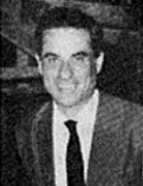

After an undergraduate dissertation on the political and social ideas of Alexandre Herculano, he turned to studying Portuguese culture in the Renaissance period, influenced by the seminars taught in Paris by Fernando Braudel and Georges Friedmann. The personality and the work of Lucien Febvre marked him, and he declared his fascination with his masterpiece Le problème de l’incroyance au XVIe siècle. La réligion de Rabelais [The problem of unbelief in the 16 th century . Rabelais’ religion ] (1942). And it is research into the history of mentalities within the framework of the plural unity of the human sciences that draws on the Annales [Annals] and the Parisian masters. In order to devote himself to ‘what Portuguese culture has produced that is most original to date’ ( Rumo de Portugal... [The direction of Portugal] , p. 36). By 1953 , the turning point had been made, and he was already publishing articles on the subject in the Annales [Annals] and in USP ’ s Revista de História [History Magazine] .
Due to his fascination with travel literature and the associated scientific literature linked to the Discoveries, he took the manuscript of Duarte Pacheco Pereira ’ s Esmeraldo de situ orbis as the centrepiece of his work. He concentrated on this complex and very rich text, working on it for years on end, scrutinising what he called the ‘prehistory of modern mentality and thought’ ( Portugal e as origens … [Portugal and the origins…] , 1981, p. 211). Because we should not look for the precursors of Descartes and Galileo in the humanists who wrote philosophical texts – clinging as they do to the Ancients. Because ‘underlying the great philosophers or men of science, we can discover a deeper mental history. A rupture like that of the 17 th century was deeply prepared long before by men who were its unconscious authors ’ ( Portugal e as origens … [Portugal and the origins] , p. 49). T he research into this prehistory focuses on the first ten known texts of travel literature. From the Crónica dos feitos de Guiné [Chronicle of Guinea’s achievements] by Gomes Eanes de Zurara in 1453 to the Esmeraldo de situ orbis by Duarte Pacheco Pereira in 1505-1508. He then goes through the dozen or so Chronicles, Descriptions of L ands, Logbooks and Itineraries.
This work is financed by national funds through FCT - Foundation for Science and Technology, I.P, in the scope of the projects UIDB/04311/2020 and UIDP/04311/2020.
